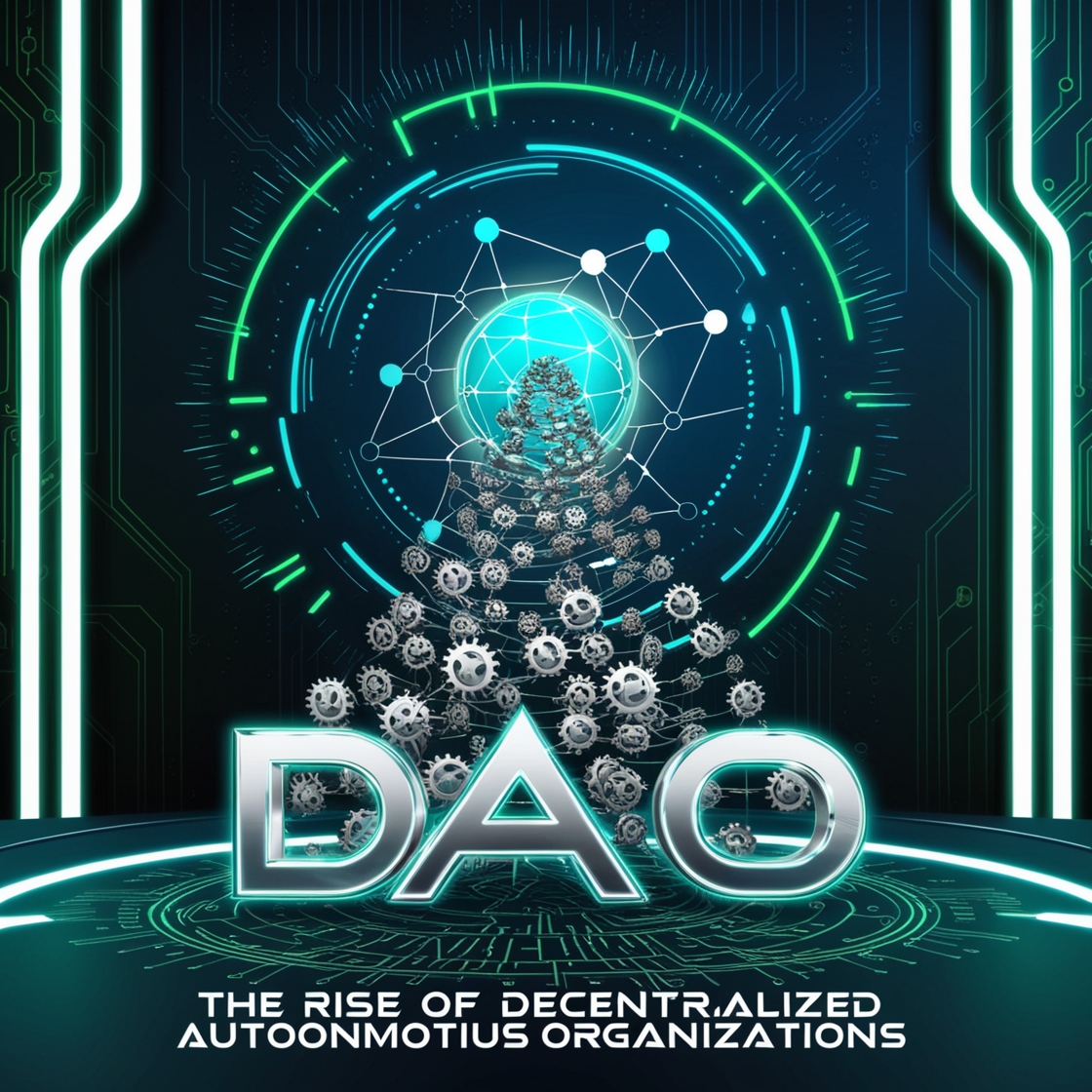Introduction
In a world where blockchain technology is revolutionizing how we think about finance, governance, and digital ownership, the concept of a Decentralized Autonomous Organization (DAO) is becoming more popular. But what exactly is a DAO, and why is it gaining so much traction? This article explores the essence of DAOs, their structure, benefits, challenges, and their future impact.
What is a DAO?
Defining Decentralized Autonomous Organizations
A DAO, or Decentralized Autonomous Organization, is an entity that operates through smart contracts on a blockchain. These contracts are pre-programmed to follow specific rules and execute actions without human intervention. Essentially, a DAO can function without a central governing body, making it truly decentralized.
Key Characteristics of DAOs
- Decentralized Control: DAOs are managed collectively by their members, not by a centralized authority.
- Transparency: All transactions and operations are recorded on the blockchain, ensuring complete transparency.
- Smart Contracts: These form the backbone of a DAO, executing decisions autonomously when certain conditions are met.
How Do DAOs Work?
Blockchain and Smart Contracts
DAOs leverage blockchain technology to maintain a transparent and immutable ledger of operations. Smart contracts are used to encode the rules and decision-making processes, allowing for automation and removing the need for intermediaries.
Member Participation and Voting
DAO members typically participate through tokens, which grant them voting power. The more tokens a member holds, the more influence they have on decision-making. Proposals are made and voted upon, and smart contracts ensure that the outcomes are executed automatically.
The Rise of DAOs: Why Now?
Technological Advancements
The rise of blockchain technology and the development of more sophisticated smart contracts have paved the way for DAOs. This infrastructure allows for seamless and secure automation of processes that would otherwise require complex human oversight.
Demand for Decentralization
In the wake of financial crises and growing distrust in centralized institutions, people have started to look for alternatives that offer more control and transparency. DAOs fit this mold perfectly, providing a solution that aligns with the ethos of decentralization.
Types of DAOs
Protocol DAOs
These are designed to manage and govern blockchain-based protocols. Examples include MakerDAO and Uniswap.
Investment DAOs
Investment DAOs pool capital from members and collectively decide on investments. Venture capital DAOs like MetaCartel Ventures are examples of this type.
Collector DAOs
These DAOs focus on pooling funds to acquire digital assets such as NFTs. PleasrDAO is a well-known example.
Social DAOs
Social DAOs are designed around community-building and shared interests. They prioritize collective participation and governance to create a network that aligns with members’ values.
Benefits of DAOs
1. Democratized Decision-Making
With a DAO, every member has a say, making the governance structure more democratic compared to traditional corporate models.
2. Transparency and Trust
All DAO activities are recorded on the blockchain, ensuring members can trust the organization’s integrity.
3. Global Collaboration
DAOs are not limited by geography. Members from all over the world can join, participate, and collaborate seamlessly.
Challenges Facing DAOs
Regulatory Uncertainty
The regulatory landscape for DAOs remains unclear. Different countries have different stances on blockchain and cryptocurrencies, creating potential legal obstacles.
Security Concerns
Smart contracts, while powerful, are not immune to vulnerabilities. Flaws in the code can lead to exploits, as seen in the infamous 2016 DAO hack that resulted in the loss of millions of dollars.
Coordination Issues
Managing large groups of people with varying opinions can be difficult. DAOs sometimes face challenges in reaching a consensus, especially when voter participation is low.
Notable Examples of DAOs
1. MakerDAO
MakerDAO is one of the most well-known DAOs, responsible for the creation of DAI, a stablecoin pegged to the US dollar. MakerDAO showcases how decentralized finance (DeFi) can function efficiently.
2. Uniswap
Uniswap’s DAO governs the popular decentralized exchange (DEX), enabling token holders to propose and vote on protocol changes.
3. ConstitutionDAO
ConstitutionDAO was a unique project that raised over $40 million in an attempt to purchase an original copy of the U.S. Constitution. While they didn’t succeed in the purchase, the initiative highlighted the power of collective action.
The Future of DAOs
Mainstream Adoption
As blockchain technology becomes more integrated into everyday life, DAOs could become more mainstream. They have the potential to redefine how businesses, nonprofits, and even governments operate.
Innovations in Governance
New models of DAO governance are being explored, including quadratic voting and reputation-based systems, which could solve some of the current challenges faced by traditional voting mechanisms.
Increased Legal Recognition
As more DAOs emerge, governments may need to establish legal frameworks that recognize and regulate them appropriately, fostering a clearer path for growth.
Conclusion
DAOs represent a revolutionary shift in how we think about organizations, governance, and collective decision-making. While they come with their own set of challenges, the benefits of decentralization, transparency, and global collaboration make them an exciting development in the world of blockchain.
FAQs
1. What does DAO stand for?
DAO stands for Decentralized Autonomous Organization.
2. How does a DAO differ from a traditional organization?
DAOs operate without a central authority, relying on smart contracts for governance, whereas traditional organizations are typically run by a hierarchical management structure.
3. Can anyone join a DAO?
Yes, most DAOs are open for anyone to join, often requiring participation through the purchase or holding of specific tokens.
4. What was the 2016 DAO hack?
The 2016 DAO hack involved a security flaw in the smart contract code that allowed an attacker to siphon funds, highlighting vulnerabilities in early DAO projects.
5. Are DAOs legal?
The legality of DAOs varies by jurisdiction, as regulatory frameworks for blockchain-based organizations are still evolving
